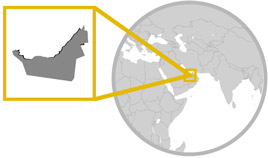About Uzbekistan:
Uzbekistan is a landlocked country located in Central Asia, bordered by Kazakhstan to the north, Kyrgyzstan to the northeast, Tajikistan to the southeast, Afghanistan to the south, and Turkmenistan to the southwest. It is one of the region's most populous and historically significant nations. The country covers an area of around 448,978 square kilometers (173,351 square miles) and is known for its diverse landscapes, which include deserts, mountains, and fertile valleys.
History of Uzbekistan:
Ancient Civilizations:
The region that is now Uzbekistan has a rich history dating back to ancient times. It was part of the historic Silk Road, an extensive network of trade routes connecting East and West. The area was inhabited by various nomadic tribes and early settled civilizations, including the Bactrians and the Sogdians, who were known for their advanced agricultural practices and prosperous trade.
Islamic Influences:
In the 8th century, Arab armies brought Islam to the region, and by the 9th and 10th centuries, the Samanid Empire, centered in what is now Bukhara, emerged as one of the first major Islamic states in Central Asia. The region became a hub of Islamic scholarship and culture during this period.
Mongol Conquests:
In the 13th century, the Mongol Empire, under the leadership of Genghis Khan and later his grandson Timur (Tamerlane), swept through Central Asia, leaving a significant impact on the region. Timur established the Timurid Empire, which was centered in Samarkand and became known for its grand architecture and cultural achievements.
The Rise of the Uzbek Khanate:
In the early 16th century, the Uzbeks, a Turkic-speaking ethnic group, founded the Shaybanid Dynasty and established the Khanate of Bukhara. The Uzbek Khanate gained control over much of the territory of present-day Uzbekistan and became a significant power in the region.
Russian Conquest and Soviet Era:
In the 19th century, Imperial Russia expanded into Central Asia, annexing the territories that now form Uzbekistan. The region was made part of the Russian Empire and later the Soviet Union. During the Soviet era, Uzbekistan underwent significant industrialization and modernization, but it also experienced repression and forced collectivization.
Independence:
After the dissolution of the Soviet Union in 1991, Uzbekistan declared its independence and became a sovereign nation. Islam Karimov, who had been the First Secretary of the Communist Party in Uzbekistan since 1989, became the country's first president and ruled until his death in 2016. Shavkat Mirziyoyev succeeded Karimov and initiated various economic and political reforms to modernize the country.
Contemporary Uzbekistan:
Since gaining independence, Uzbekistan has sought to develop its economy and strengthen diplomatic ties with other nations. The country remains a prominent player in Central Asia and actively participates in regional and international organizations. Tourism has grown steadily, with visitors attracted to the country's rich cultural heritage, ancient cities, and breathtaking landscapes.
Today, Uzbekistan continues to undergo socio-economic transformations while preserving its cultural identity and historical heritage. The country's location at the crossroads of civilizations has left a lasting impact on its culture, traditions, and people, making it a fascinating destination for travelers and historians alike.

